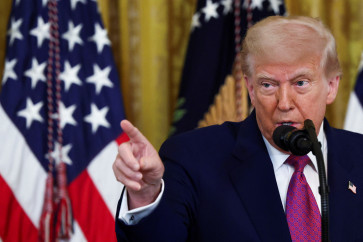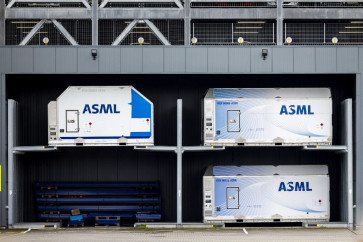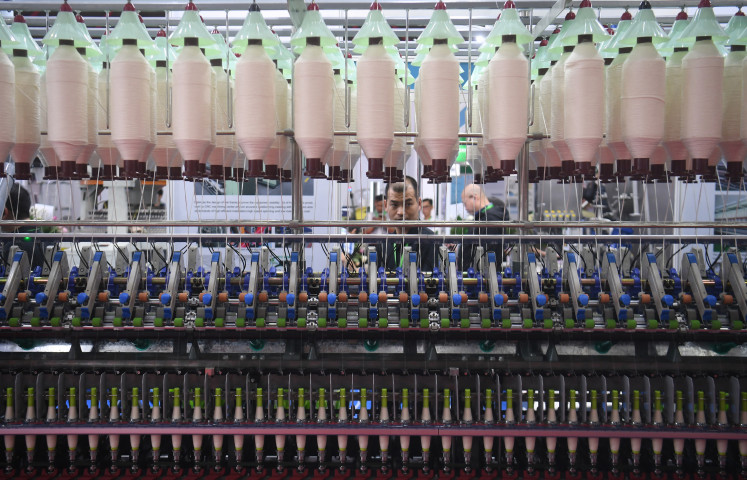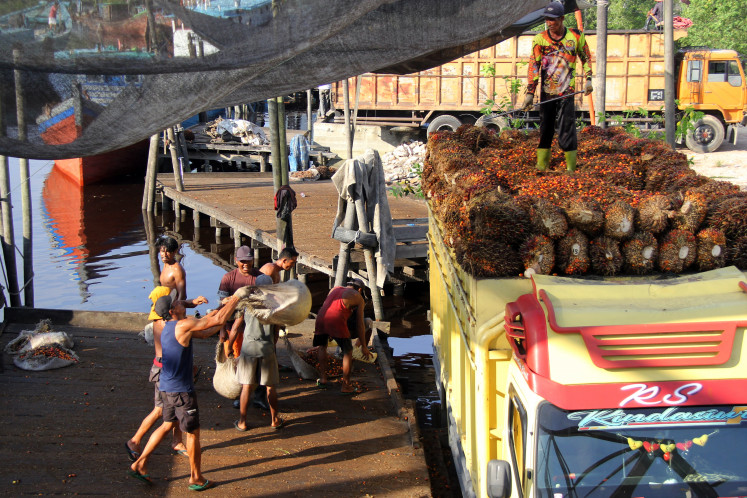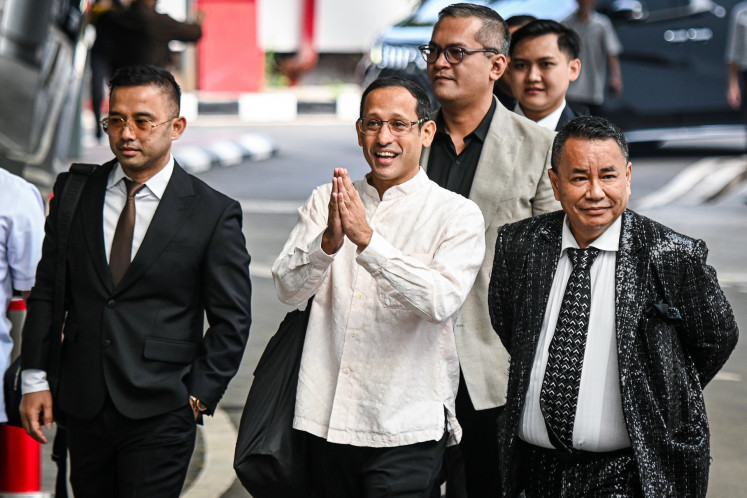Popular Reads
Top Results
Can't find what you're looking for?
View all search resultsPopular Reads
Top Results
Can't find what you're looking for?
View all search resultsASEAN, S. Korea look for peace on peninsula
Diplomatic entanglement: Posing for a group photo during the ASEAN-South Korea Commemorative Summit in Busan on Tuesday are (from left) Malaysian Prime Minister Mahathir Mohamad, Myanmar’s leader Aung San Suu Kyi, Philippine President Rodrigo Duterte, Singaporean Prime Minister Lee Hsien Loong, Thai Prime Minister Prayut Chan-o-cha, South Korean President Moon Jae-in, Vietnamese Prime Minister Nguyen Xuan Phuc, Brunei Sultan Hassanal Bolkiah, Cambodian Foreign Minister Prak Sokhonn, Indonesian President Joko “Jokowi” Widodo and Laotian Prime Minister Thongloun Sisoulith
Change text size
Gift Premium Articles
to Anyone
D
iplomatic entanglement: Posing for a group photo during the ASEAN-South Korea Commemorative Summit in Busan on Tuesday are (from left) Malaysian Prime Minister Mahathir Mohamad, Myanmar’s leader Aung San Suu Kyi, Philippine President Rodrigo Duterte, Singaporean Prime Minister Lee Hsien Loong, Thai Prime Minister Prayut Chan-o-cha, South Korean President Moon Jae-in, Vietnamese Prime Minister Nguyen Xuan Phuc, Brunei Sultan Hassanal Bolkiah, Cambodian Foreign Minister Prak Sokhonn, Indonesian President Joko “Jokowi” Widodo and Laotian Prime Minister Thongloun Sisoulith.(AFP/2019 ASEAN-ROK Commemorative Summit handout)
ASEAN and South Korean leaders concluded their two-day summit on Tuesday, agreeing not only to step up economic and sociocultural cooperation but also to support denuclearization and permanent peace on the contentious Korean Peninsula.
The commitment was outlined in a document called the Joint Vision Statement for Peace, Prosperity and Partnership, which was adopted during the ASEAN-Korea Commemorative Summit in Busan to mark 30 years of dialogue between South Korea and the Southeast Asian bloc.
South Korean President Moon Jae-in said the countries agreed to work more closely to build a “peaceful east Asian community”.
“We, the leaders, share the view that peace and stability in Northeast Asia are linked to the security of Southeast Asia and to the cooperation in building peace in the region,” Moon said, as quoted by The Korea Herald.
The ASEAN leaders, Moon said, pledged to assist the peace process on the Korean Peninsula. They expressed support for Moon's idea of transforming the Demilitarized Zone into an “international peace zone”, which he first proposed at a recent United Nations General Assembly.
ASEAN has been eyeing a role in the Korean peace process, including through a sideline meeting at the Busan summit. But North Korean leader Kim Jong-un turned down Moon’s invitation to participate as an observer at the regional summit. The North’s official Korean Central News Agency said there was no reason for Kim to visit the South under a “beclouded air”.
Reuters previously reported that Pyongyang had conducted seven missile tests since US President Donald Trump met with Kim earlier this year. Their meeting ended without an agreement. One of North Korea’s top nuclear negotiators, who is also a close aide to Kim, said last week it would be the fault of the United States if diplomacy on the issue broke down.
Pyongyang has also stepped up criticism of Seoul and Washington in recent months for joint military drills and the South's purchase of US weapons designed to fend off North Korean threats.
In the joint statement on Tuesday, ASEAN and South Korea were also determined to enhance cooperation to address traditional and non-traditional security challenges such as transnational crime, terrorism and violent extremism.
They pledged to improve cybersecurity cooperation to build an open and secure cyberspace and “to support the development of digital economy in the region”.
The leaders believed that improving ASEAN connectivity was the key to achieving greater economic benefits. They also encouraged greater collaboration on youth and people-to-people exchanges through educational, entrepreneurship and volunteering opportunities.
“A seamlessly and comprehensively connected and integrated ASEAN will bring prosperity to both ASEAN and South Korea,” the statement said, pointing to areas such as sustainable infrastructure, digital innovation, seamless logistics and transportation as the driving factors for cross-border trade and the movement of people.
Currently, ASEAN is the East Asian nation’s second-largest trading partner after China. South Korea’s trade with the region totaled US$159.74 billion — $100.11 billion in exports and $59.63 billion in imports — as of 2018, according to the Korea International Trade Association.
Speaking at one of the sessions of the summit on Tuesday, President Joko “Jokowi” Widodo reiterated the role of the ASEAN Outlook on Indo-Pacific and South Korea’s New Southern Policy as solid baselines for connectivity cooperation.
Jokowi later underlined the role of soft-connectivity — people-to-people ties — in achieving the grand goal of mutually beneficial ties. He called for it to be deepened, particularly interactions between civil society, students and business communities.
“Let us continue to work together in hard-connectivity and soft-connectivity,” he said, according to a press release from the Presidential Palace.



